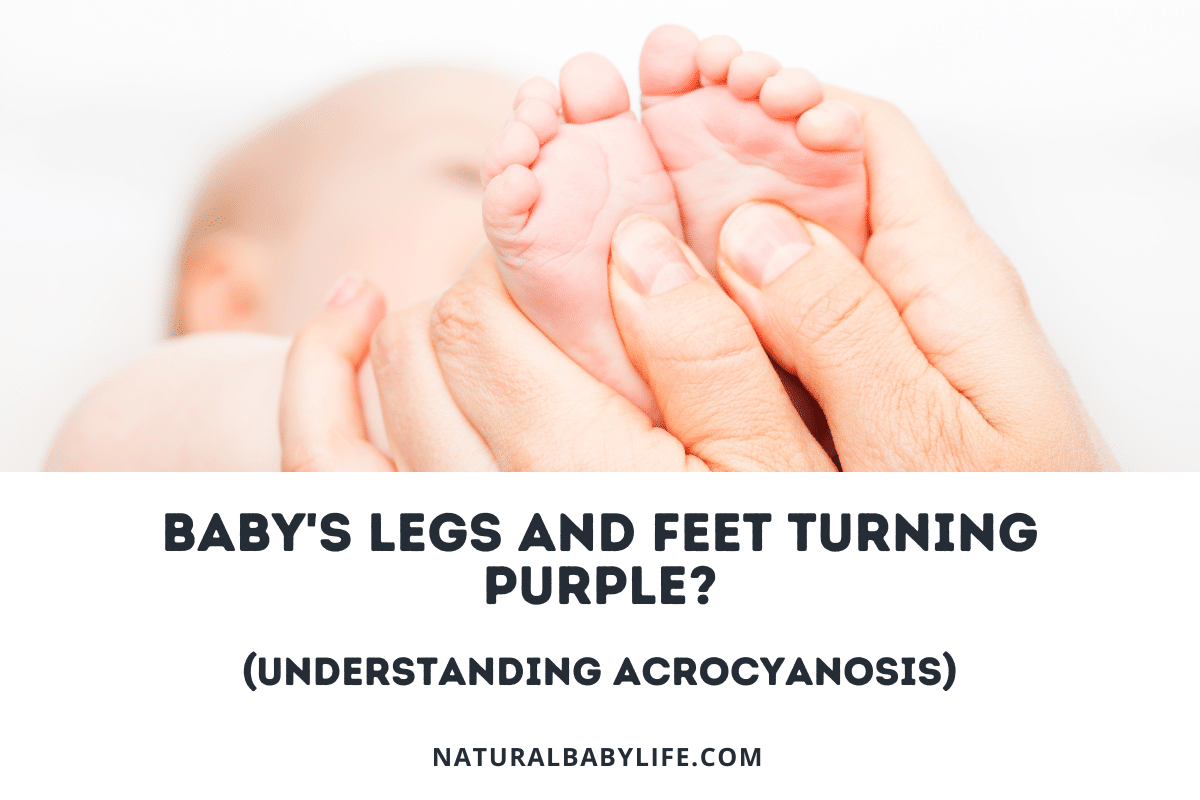Symptom spotting isn’t reserved for people trying to conceive. The process comes full circle when you start looking for any sign that labor might be imminent. Nausea, body pains, and other flu-like symptoms can leave you wondering whether you’ll be meeting your baby soon or whether you just have the flu or a summer cold.
Pregnancy suppresses your immune system, so it’s possible that you’re experiencing flu-like symptoms because you caught a bug. Other flu-like symptoms like fatigue and body pain correlate with typical pregnancy ailments and side effects but do not predict labor.
Read on to learn about the most reliable indicators of labor and some possible explanations for your flu-like symptoms.
Table of Contents
What’s happening to your body as labor approaches–feelings, emotions, and physical changes
In the weeks leading up to the birth of your baby, your body is slowly getting ready for birth, but you probably won’t notice most of the changes.
A lot of the changes are happening in your cervix as it tilts forward and begins to soften for the baby’s birth. Braxton Hicks contractions might even help your cervix dilate a little before real labor begins.

If this is your first birth, you might notice the baby dropping and engaging in your pelvis a week or two before labor as it prepares for birth. You might also experience increased vaginal secretions, back pain, and, of course, nesting, which is a burst of energy at the end of pregnancy.
What are the signs that you will be going into labor soon?
By the time week 38 or 39 of pregnancy comes around, most women are done being pregnant and are eagerly looking for any sign that labor is near. Unfortunately, there’s no reliable method for predicting when labor will start.
You might hear a lot of stories from friends or family members or read online about people doing or feeling certain things right before going into labor. In reality, there’s a relatively short window of time–assuming your conception date is accurate–that you can expect to go into labor.
As a result, it’s easy to attribute causation when it’s really a matter of correlation.
You’re considered early-term at 37 weeks, full-term at 39 weeks, and post-term at 42 weeks. About 10 percent of births in the United States happen before 37 weeks.
Even cervical checks at the end of your pregnancy won’t give you a realistic estimate of when you’ll go into labor. You could remain barely dilated for weeks or suddenly dilate overnight.
The best clue that you’ll be having your baby soon is when you actually go into labor!
What types of flu-like symptoms will women experience before labor?
While some women feel fantastic throughout pregnancy, most experience a variety of ailments and discomforts. As your body reaches its limits in the last weeks of pregnancy, you might experience some symptoms that remind you of the flu–nausea, fatigue, body aches, and just generally feeling bad.
Of course, you might also be sick.
Nausea and vomiting before labor
Many women experience a resurgence of nausea and vomiting in the third trimester. While early pregnancy nausea is thought to be caused by the production of HCG after the blastocyst implants, late-pregnancy nausea most commonly stems from gastrointestinal issues.
As the fetus grows, your body’s digestive tract has to rearrange itself to accommodate your growing uterus. The baby can compress and even block your digestive tract, leading to feelings of excessive fullness and uncomfortable digestion.
About 51 percent of pregnant people experience gastroesophageal reflux disease (GERD) in the third trimester. The hormone progesterone causes muscles in your body to relax, which is important to help your uterus grow to the size of a 7-or-8-pound baby. Unfortunately, it also relaxes your esophageal sphincter, which is what normally keeps your stomach acid in your stomach where it belongs.
Severe heartburn in pregnancy can cause chest pain and feelings of fullness in your chest as well as a cough. When you put those two things together, you might find yourself vomiting.
Increased back pain prior to labor
If you’ve made it to the third trimester, you’re probably no stranger to back pain. However, you might notice an increase in back pain that reminds you of the aches and pains of having the flu.
Just as progesterone relaxes your uterus, it relaxes other ligaments in your body to prepare you for labor. As a result, your body doesn’t have the same strong internal support system that you normally enjoy. In combination with the human bowling ball that you carry on your front, it’s no wonder your back hurts especially badly in the last days of your pregnancy.
Typical back pain is described as a dull, achy, or heavy feeling. If your back pain is intense, comes in waves unrelated to how you move your body and does not go away, you may be experiencing back labor, which is a sign you’re actually in labor.
Cough or sore throat before labor
If you develop a cough or sore throat in your third trimester, it could be COVID-19, influenza, or even a cold. However, it could also be one of the many symptoms of pregnancy.
Acid reflux can also be the culprit as your throat lining becomes irritated by the acidic contents of your stomach. It can be confusing to parse out all the terms for this particular pregnancy unpleasantness. Heartburn is the feeling you experience from acid reflux. GERD describes chronic, ongoing acid reflux and is common during pregnancy.
Diarrhea before labor
Many people experience diarrhea with the flu, and a quick Internet search makes it seem like it also hearkens the arrival of a new baby. Not so fast.

Diarrhea alone does not indicate labor is near. As mentioned above, your digestive system is not at its best thanks to the little human taking up space in your abdomen. However, it is common to experience loose stools during labor as the same contractions that push the baby out push out other things as well.
Flu, colds, and other illnesses before labor
Finally, the cause of your flu-like symptoms might actually be the flu–or a cold, COVID, or other contagious illness.
A pregnant person lives with a suppressed immune system from the time the little intruder implants until the bundle of joy is born. As your body grows another human in itself, it has to scale back its natural response to invading cells to allow the fetus to grow. As a result, you might find yourself with the sniffles more than once during pregnancy.
We often think of a suppressed immune system during the early days of pregnancy when you just have a bundle of cells in your uterus hoping for a chance to grow. However, that immune suppression in late pregnancy is one factor in preventing pre-term births
How long before labor will you experience these symptoms?
Because flu-like symptoms before labor are not indicative or even related to labor, there’s no way to use them to guess when you’ll finally have your baby.
Unfortunately, the only way to know when labor will really happen is to suddenly find yourself in the midst of it. The sure sign of labor is that you have contractions every 2 to 5 minutes.
Real contractions will not subside by changing positions, taking a bath, or with a back rub.
How long will these symptoms last?
Fortunately, most pregnancy-related symptoms recede after delivery.
Heartburn typically dissipates soon after birth. With it will go the coughing and sore throat also caused by your stomach acid, and your nausea should dissipate as your digestive tract returns to its normal self.

Those pregnancy-related aches and pains may be with you for a while. The relaxins can remain in your body for up to a year after birth, so be gentle with yourself if you decide to start an exercise program.
Other types of symptoms that you may feel before labor
Other events you might notice in the days and weeks leading up to labor are the baby dropping and the loss of the mucus plug.
When your baby “drops,” it settles lower in your pelvis in preparation for the birth process to begin. You might not notice a visible difference, but it sometimes feels easier to breathe and like you are a little less stuffed in your upper abdomen.
Not all women lose their mucus plug before labor, but if you do, you’ll probably notice it. The mucus plug protects your cervix during pregnancy and prevents bacteria from entering your uterus. When your cervix starts to thin and dilate, which can happen weeks before actual labor, the mucus plug falls out. It might be white, pink, or tinged with blood and can look solid like a cork or gelatinous and stringy.
Remedies for going into labor
The way you want to manage your labor is highly personal, so think in advance about what can help you feel safe and bring you comfort during labor. Here are a few common options:
- Soak in a warm bath.
- Sit on an exercise ball. Bounce and sway your hips to change positions.
- Walk or climb stairs, especially if you feel like labor isn’t progressing.
- Have your birth partner do hip squeezes or counterpressure during contractions.
- Have a playlist or watchlist to distract you during early labor.
- Stay hydrated.
What can you do to prepare for going into labor?
Birthing a baby is an arduous physical event. Just like you wouldn’t run a marathon without training, it’s not a great idea to walk into the hospital without some preparation.
While you’re waiting to meet your baby, do plenty of research to get an idea of what to expect and what options you have to manage the experience. After you get an idea of what you want, write down your birth preferences to provide to your medical team.
Consider having a doula at your birth. A doula is a great support person for unmedicated births, and they can also help you advocate for yourself regardless of what type of birth you want.
Why do you feel sick before labor?
Your body has gone through a lot in its 40 weeks of pregnancy to grow a human from scratch. The sickness symptoms you’re feeling can likely be attributed to the many consequences of pregnancy or even a bug that you picked up. Unfortunately, there’s no scientific evidence that flu-like symptoms are a precursor or predictor of labor.
Will your body go into labor if you are sick?
Medical professionals believe that labor begins when the baby releases a substance that kickstarts the mother’s labor hormones. When all goes as it should, this happens when the baby is physically mature enough to be borne and isn’t related to the mother’s comfort.










